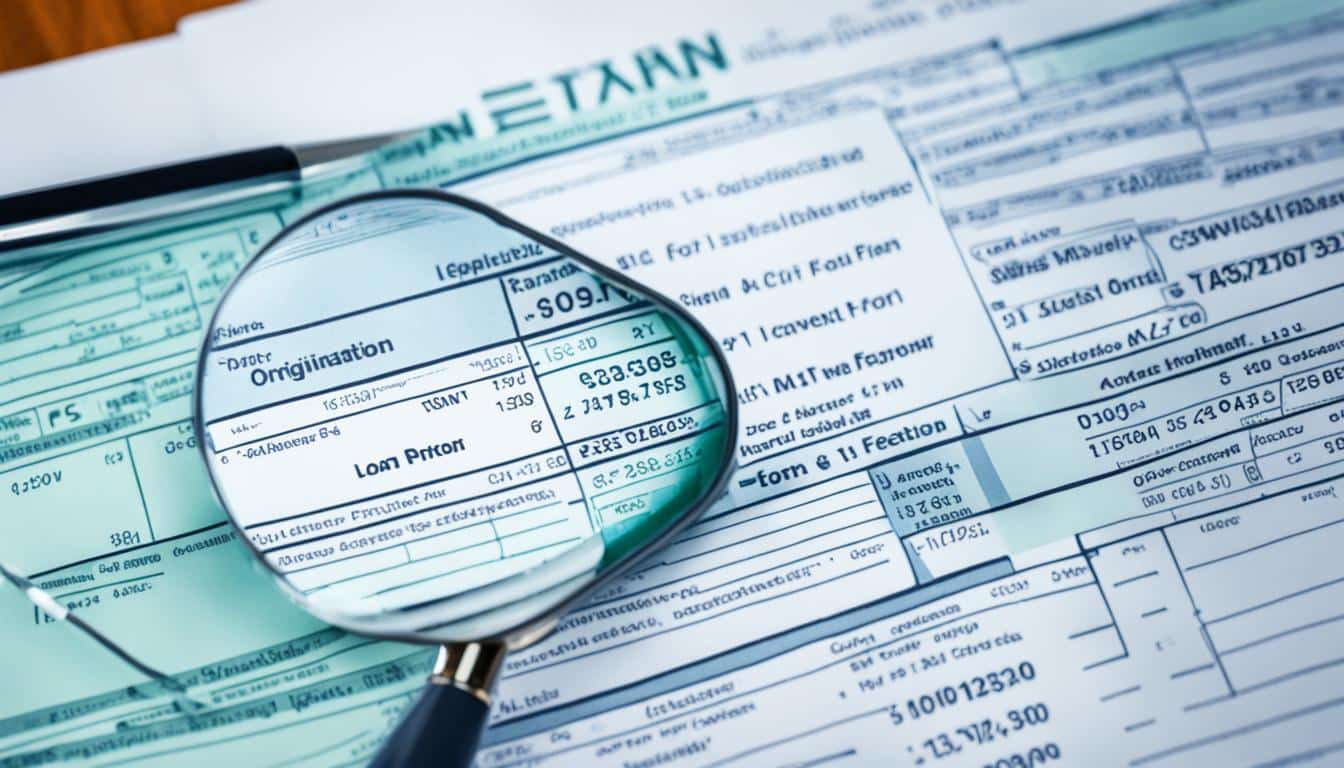You’ve just bought your dream home and are now dealing with a lot of paperwork. Loan origination fees are one of the costs you’ll see. But can you deduct these fees at tax time? Let’s explore deductible closing costs and home loan fees to see if you can write off those fees.
Imagine you’re borrowing $300,000 for your new home. Then, you’re surprised with a loan origination fee of $3,000 to $6,000. But don’t worry yet. The IRS might let you deduct some closing costs, including certain loan origination fees, if you itemize your taxes.
Before you dream of spending your tax refund, remember tax laws can be hard to understand. Some loan origination fees are deductible, but not all. It’s important to know the difference and talk to a tax expert to make sure you’re using the right deductions.
Key Takeaways
- Loan origination fees usually are 1% to 2% of the loan’s total amount
- Some closing costs, like certain loan origination fees, might be deductible
- You can deduct closing costs in three ways: in the year paid, over the loan’s life, or add it to your home’s basis
- The IRS sees both discount points and loan origination fee points as pre-paid interest
- Talk to a tax expert to get advice on your situation
Understanding Loan Origination Fees and Their Tax Implications
Loan origination fees are important in buying a home. You might ask about tax benefits and deductions for homeowners. Let’s look at loan origination fees and their tax effects.
What are loan origination fees?
Lenders charge loan origination fees for processing your mortgage. These fees are about 1% of your loan’s value. They pay for tasks like document collection and checking your income.
How loan origination fees differ from discount points
Both can be deducted on taxes, but they are not the same. Origination fees pay for processing your application. Discount points are paid upfront to lower your interest rate.
The role of origination fees in closing costs
Origination fees are a big part of closing costs, making up 1-2% of your loan. These fees might be deductible if you follow IRS rules. Remember, these costs can be deducted for your mortgage.
Knowing about these fees and their tax effects can help you use homeownership tax benefits well. Always talk to a tax expert to make sure you’re getting the most from your deductions.
Are Loan Origination Fees Tax Deductible?
Loan origination fees might be tax-deductible, but there’s a catch. The IRS sees these fees as pre-paid interest. This makes them part of your mortgage costs. But, you need to know the IRS rules on loan fees before you think about saving on taxes.
- Use the cash method of accounting
- Apply the mortgage to your main home
- Make sure the points charged are normal in your area
If you don’t meet these rules, don’t worry. You might still deduct the points over the loan’s life. It’s like getting a little tax savings each year.
Not all home expenses can be deducted. Things like homeowners insurance, monthly payments, and utility bills don’t count. But, the standard deduction for married couples filing together is $25,900. This might help you save more.
Tax deductions can be as hard as Monopoly. If you’re unsure about your mortgage costs, talk to a tax expert. They can guide you through the IRS rules and help you get the most from your home purchase tax deductions.
Conclusion: Maximizing Your Tax Benefits from Loan Origination Fees
Getting tax deductions for home purchase can seem hard. But, you can make loan origination fees work for you. With some knowledge, you can save money on taxes.
Loan origination fees, or points, can be deducted when buying your main home. The IRS lets you deduct these costs in the year you pay them or over your mortgage’s life. It’s like choosing between a tax buffet now or a series of tasty tax snacks later!
To get the most tax benefits, watch your closing disclosure and Form 1098 from your lender. These papers help you find deductions. Also, remember that property taxes and mortgage interest can be deducted. But, for loans taken out after December 15, 2017, the interest limit is $750,000.
Think about adding energy-efficient upgrades like solar panels to your home. They might get you tax credits, lowering your taxes. It’s like getting a high-five from Uncle Sam for being green! But, be careful, as tax rules can be complex. Always talk to a tax expert to make sure you’re using your deductions right and following IRS rules.








